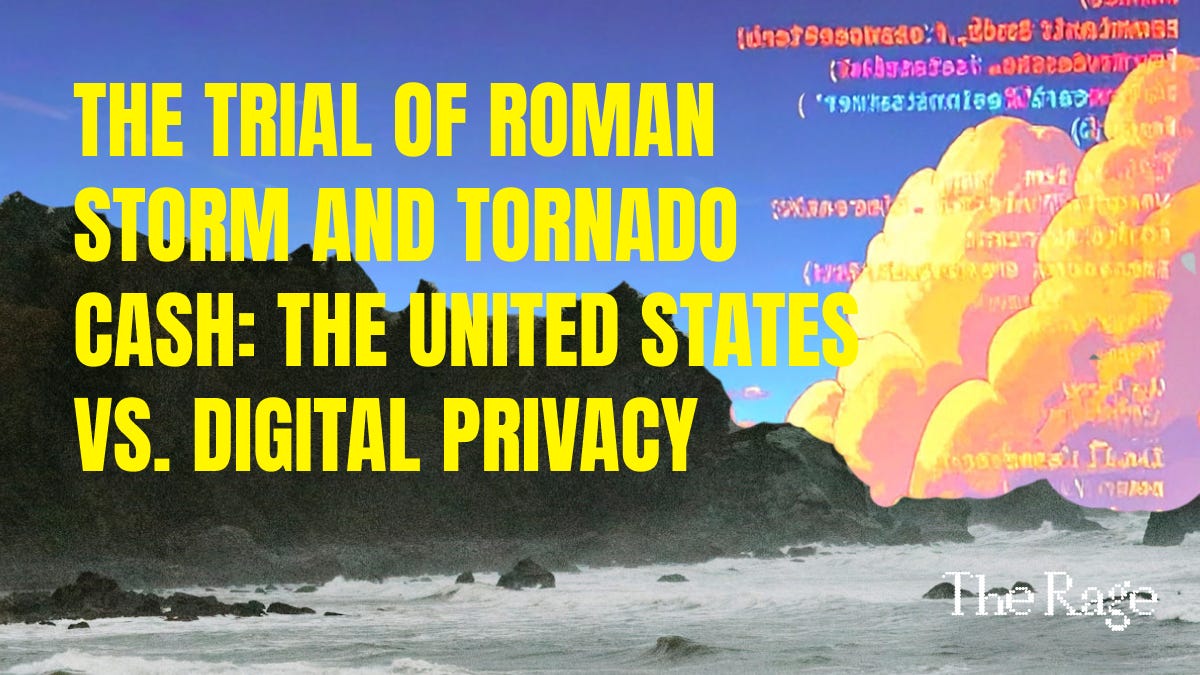👁️ Starting Now: The Tornado Cash Trial and the Future of Privacy
Is Roman Storm a nefarious money-launderer? Or an activist for individual autonomy?
Welcome to Dark Markets, a newsletter devoted to investment fraud, cryptocurrency, and, increasingly, deep-state malfeasance. At the center of all three lies the story of Tornado Cash, a mixing protocol on the Ethereum blockchain, whose creators now face prosecution on money laundering charges.
Starting later today, when I head in to absorb a bit of the (lengthy and boring) jury selection process, I will be covering the trial of Roman Storm for The Rage, an independently-funded news outlet with a strong cypherpunk ethos.
To keep tabs on that coverage, be sure to follow me on X, Farcaster, or BlueSky at @davidzmorris. Follow The Rage at @theragetech. We’ll be arranging regular Spaces discussions and other recaps of trial events. Ahead of the trial’s opening, The Rage has published my in-depth rundown of the core issues here. Read on for a brief summary.
Briefly, Tornado Cash is a decentralized protocol that lets users break the publicly-traceable chain of custody inherent to all tokens on the Ethereum blockchain. It’s a tool with a lot of utility for many kinds of users, particularly including large hedge funds who don’t want their positions public.
But true anonymity in the digital era requires, well, true anonymity - and Tornado Cash cannot block or track any users at the protocol level. That, naturally, made it attractive to criminal money launderers. At the heart of Storm’s prosecution is the alleged use of Tornado Cash by North Korea’s Lazarus hacking group to launder roughly $500 million worth of Ethereum and other tokens stolen in the 2022 hack of the Ronin Network.
This is also the core strangeness of the prosecution’s case: Neither Storm nor any Tornado Cash developer, according to the prosecution’s own indictment, ever communicated directly with Lazarus or any North Korean representative. Rather, prosecutors are charging conspiracy, in essence, on the basis that the Tornado Cash service was available at all.
Even apart from the actual question of culpability, the case raises serious questions about the fundamentals of financial regulation and even freedom of speech in the digital age.





